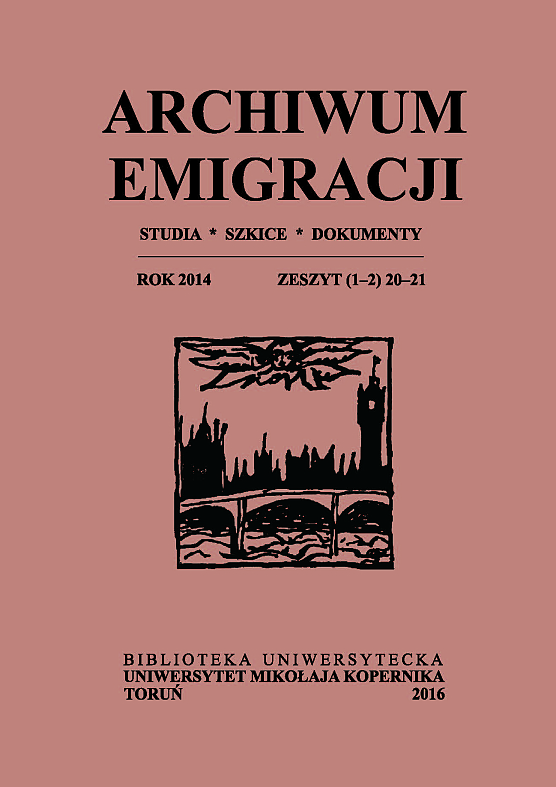Czy język polski jest językiem żydowskim? O lingwistycznych dylematach poetów polsko-żydowskich dwudziestolecia międzywojennego
DOI:
https://doi.org/10.12775/AE.2014.002Keywords
Polish-Jewish literature of the 1918–1939 period, identity, Daniel Ihr, Eleazar Merchentraum.Abstract
IS POLISH A JEWISH LANGUAGE? LINGUISTIC DILEMMAS OF POLISH-JEWISH POETS OF THE INTERBELLUM
Evidence of their authors’ linguistic dilemmas in the context of their national and cultural identity, can be found in many poems published by the Polish-Jewish press of the 1920s and 1930s. Jewishness understood as an existential experience was expressed in literature in the times of the Second Polish Republic in three semiotic orders—in Polish, Hebrew and Yiddish (this issue has been researched by W. Panas, Ch. Shmeruk, E. Prokop-Janiec, and M. Adamczyk-Garbowska). Three poems written in Polish are the object of the present analysis: “Do mowy żydowskiej” (To the Jewish Tongue) by Eleazar Merchentraum, “Do polskiej mowy” (To the Polish Tongue) and “Do mowy hebrajskiej” (“To the Hebrew Tongue”)—both by Daniel Ihr. They contain reflections on cultural-semiotic systems used by the poets as an artistic means of expression of their identity. However, both the assimilationist Jew from Merchentraum’s poem and the Zionist from Ihr’s linguistic elegies are addressing the three languages—Jewish, Polish and Hebrew—using the Polish language. Polish-Jewish poets in the 1930s discovered the truth of being doomed to otherness, fated to talk about their Jewish dilemmas—linguistic, ethical, religious and cultural—in Polish. So by the middle of the 1930s, the Polish language had become one of the Jewish languages for most Polish-Jewish authors—in terms of communication, just for a few years; nevertheless, in terms of culture—forever.
Downloads
Published
How to Cite
Issue
Section
Stats
Number of views and downloads: 565
Number of citations: 0



